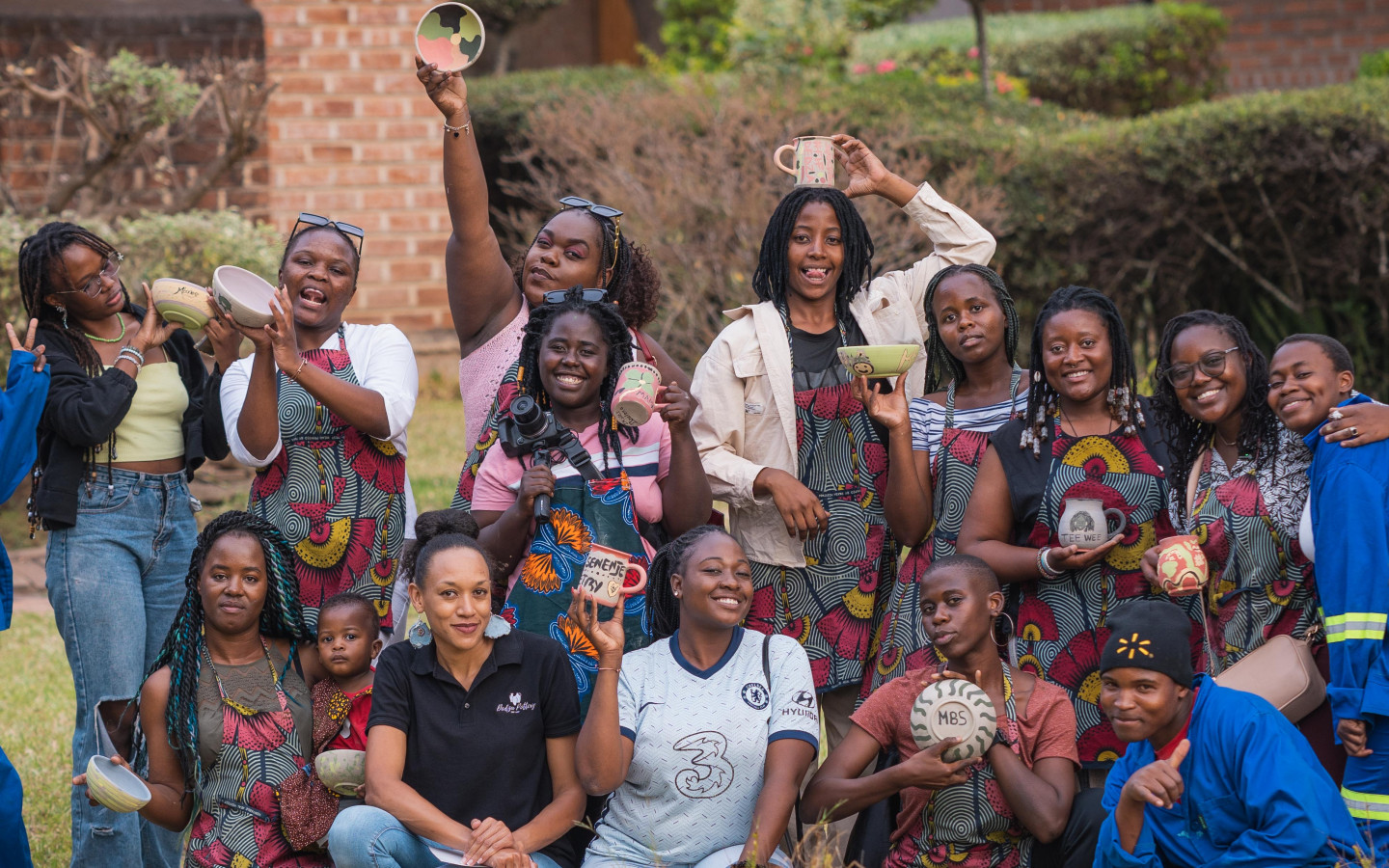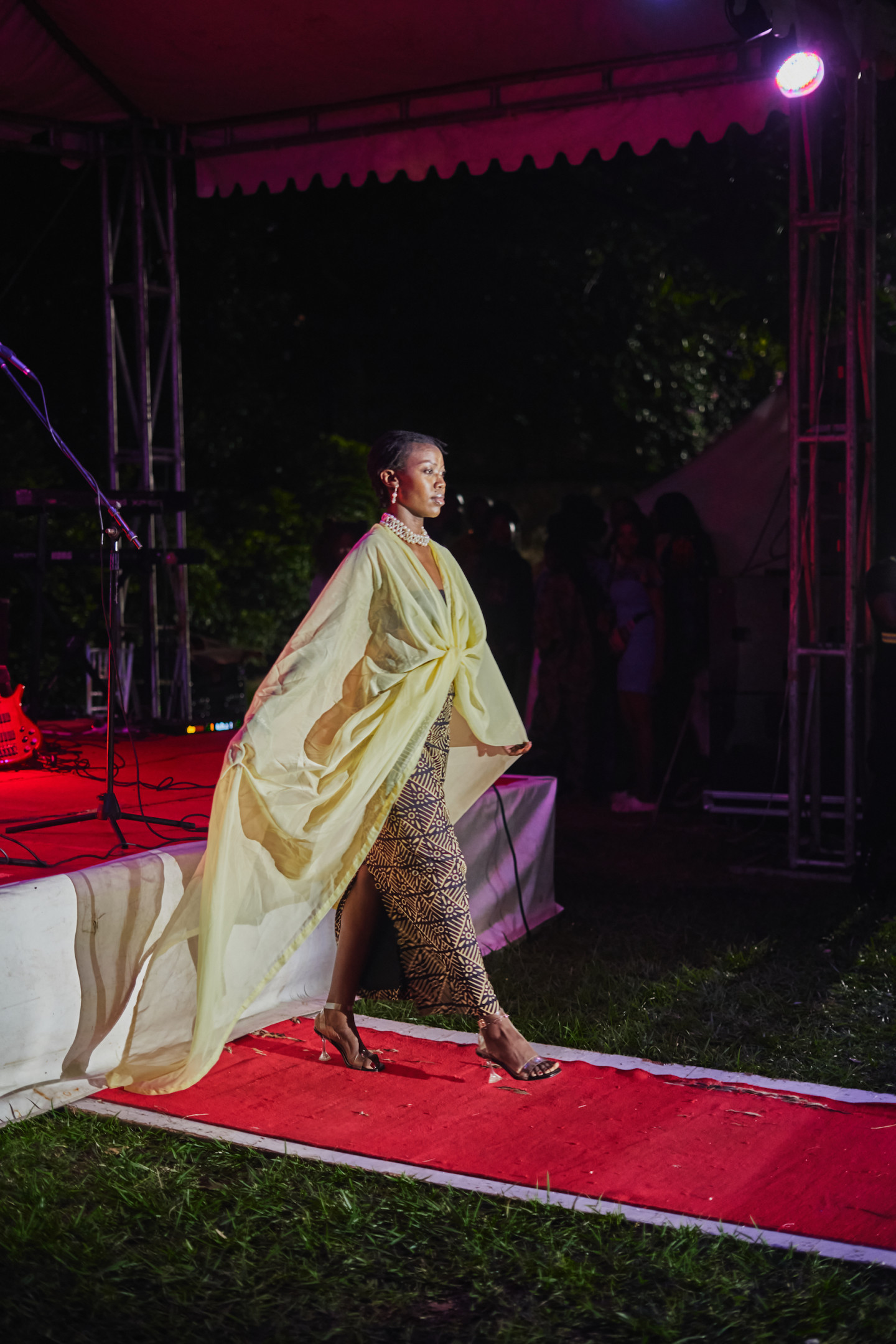Culture, beyond its intrinsic value, offers social and economic benefits and a resilient young generation is seeking new opportunities in Malawi. Gender inequality however is prevalent in the sector, with few initiatives being undertaken to promote women.
The primary focus of policymakers leaves gaps for arts and culture. Malawi presents both opportunities and challenges for entrepreneurs, with only 12% of people completing secondary education and a limited emphasis on critical thinking. Economic struggles, high poverty rates, and informal creative sectors add complexity. Gender inequality is also prevalent in the sector, with few initiatives being undertaken to promote women. Culture, beyond its intrinsic value, offers social and economic benefits. A resilient new generation is seeking new opportunities, but the male-dominated arts sector in Malawi marginalises women and creates stereotypes.
Breaking barriers for female artists towards equitable representation in the Malawi arts sector
The Future is Female is a collaborative project offering capacity building, life skills training and networking opportunities for female creatives and project managers as well as a unique experience exploring Malawi with fellow creatives, and will culminate in several collaborative creations. The project aims for broad reach, inspiring and educating the public about the role of females in the creative sector, promoting gender equality, and challenging cultural expectations of women. It fosters cultural exchange, enabling female creatives to network with local and foreign professionals in Malawi. Offering a platform for these young women to connect with people making art in different countries is an important step. Cultural exchanges change mindsets, and we can see great potential in shifting perceptions about the creative sector.
The project fosters collaboration, co-creation, and intercultural exchange to empower and upskill female creatives in Malawi to amplify their voices, and develop impactful art addressing social themes. A selected cohort of 8-12 female creatives, and 1 or 2 project managers will enhance their network and experience cultural exchange, producing multi-disciplinary art which will be exhibited at Tumaini Festival, Zomba City Festival, and Pakhonde Ethno Festival in Malawi, as well as in other locations.
The selected creatives will generate their own topic(s) for artivism. The programme offers a nurturing environment, cross-border support, and positioning of collaborative art as exportable cultural products. Participants, spanning various creative disciplines like photography, videography, poetry, music, fashion, and dance, will contribute to this collaborative art project. The goal is to create art merging different disciplines, shaping a future where female artists thrive and contribute to Malawi's artistic and economic development.
The project will also serve as a visibility and awareness campaign about jobs in the creative sector for women, aiming to destigmatise and increase the appeal of creative jobs for women. Jobs in the creative sector are not valued, they are seen as not lucrative and insecure. But for women, specifically the performing arts or creative jobs that are associated with the nightlife, are seen as improper.
Alignment with the UN Sustainable Development Goals
The overall objective of female empowerment within the creative industries in Malawi links directly to:
- SDG 5 - achieving gender equality and empower all women and girls. The empowerment of women in the creative industries is directly linked to general female stereotypes and lack of opportunity for women to establish themselves.
- This is further linked to SDG 10 - reduced inequalities and concretely subtarget 10.2, as empowerment of female entrepreneurs and creators will promote social and economic inclusion of women in the creative industry.
- Further, the project contributes to SDG 8 - decent work and economic growth, with emphasis on economic growth. In the last two decades, there has been a shift from associating creative industries with advanced economies to the creative work taking place in developing countries and contributing to economic growth. This relates to the ‘Africa on the rise’ narrative that connects creative industries to several African countries. However, Malawi is in many ways an exception to this narrative given the country's specific challenges and current development stage.
- Through partnership for the goals, concretely by mobilising financial resources SDG 17.3 by utilising partners' experience, networks and through collaboration SDG 17.6 the project can be part of shaping a new narrative for Malawi. A narrative carrying the potential of Malawian creative industries for sustainable development and women empowerment.


